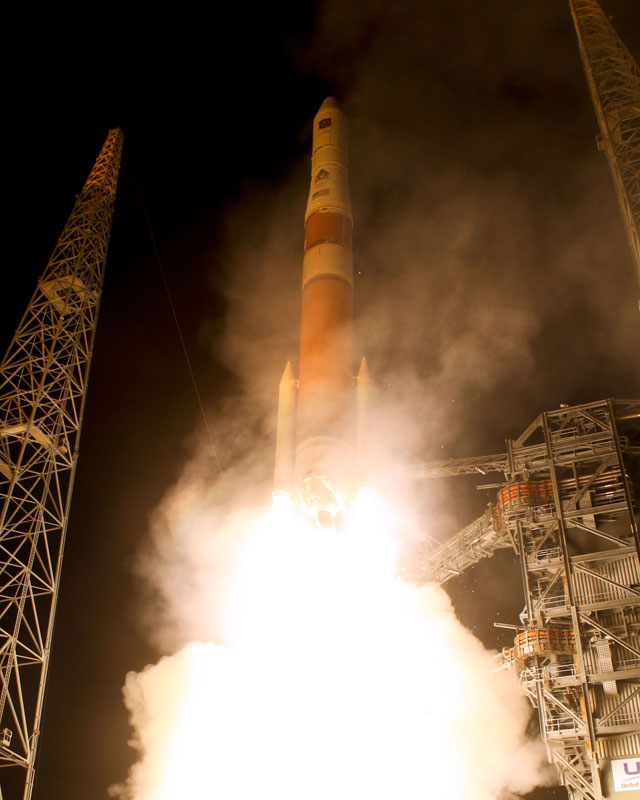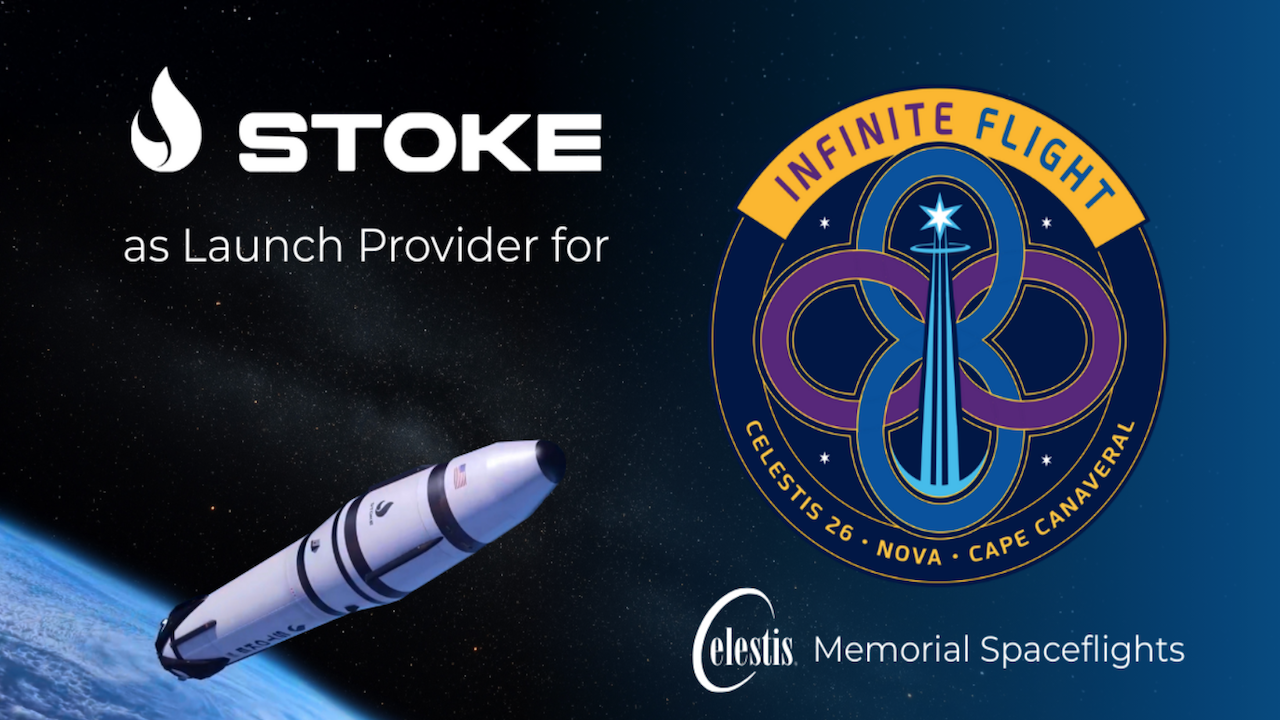Air Force Launches Advanced New GPS Satellite

This story was updated May 28 at 12:03 a.m. ET.
The first of an advanced new fleet of navigation satellites for the U.S. Air Force soared into space late Thursday in a blazing night launch from a seaside pad in Florida.
The new global positioning system (GPS) satellite, called GPS 2F-1, blasted off atop an unmanned Delta 4 rocket at 11 p.m. EDT (0300 Friday GMT) from Florida's Cape Canaveral Air Force Station.
GPS 2F-1 lifted off after a week of delays due to bad weather and technical issues. It is the first of a planned fleet of 12 new satellites to provide around-the-clock navigation ultra-precise navigation and timing services for military and civilian.
"These next-generation satellites provide improved accuracy through advanced atomic clocks; a more jam-resistant military signal and a longer design life than earlier GPS satellites; and a new civil signal that benefits aviation safety and search-and-rescue efforts," said Craig Cooning, vice president and general manager for Boeing Space and Intelligence Systems, which built the new satellite.
The GPS satellite network currently in use today flies about 11,000 miles (17,702 km) above the Earth and beam continuous navigation signals to provide accurate longitude, latitude, altitude and time information for users on Earth. The network was originally developed for the U.S. military but has since found use for a wide range of commercial applications.
"GPS is used by nearly a billion people worldwide for everything from farming and aviation to public safety, disaster relief and recreation, not to mention its military purpose of providing precision navigation and timing to combat forces," said Air Force GPS Wing Commander Col. David Madden. "GPS 2F will increase the signal power, precision and capacity of the system, and form the core of the GPS constellation for years to come."
Breaking space news, the latest updates on rocket launches, skywatching events and more!
The new GPS 2F-1 is a solar-powered satellite designed for a 12-year mission. It has twice the signal accuracy of previous navigation satellites and is equipped with a new signal capability for more robust by civilian and commercial aviation applications, Boeing officials said.
The satellite uses the U.S. military's "M-code" and variable power to increase its resistance against jamming during warfare.
Thursday night's Delta 4 launch also marked a milestone for the expendable Delta rocket family, which is celebrating its 50th anniversary this month. The very first Delta rocket — a Thor-Delta booster — launched on May 13, 1960.
The type of Delta 4 booster that launched GPS 2F-1 made its spaceflight debut in 2002 and has flown 13 successful missions, according to the United Launch Alliance (ULA), which provided the mission's expendable rocket.
GPS 2F-1 is the first GPS satellite to launch on a Delta 4 rocket. Previous navigation satellites lifted off atop ULA's smaller Delta 2 boosters. Future GPS 2F constellation satellites are expected to fly on the Delta 4 rockets or Atlas 5 boosters in ULA's Evolved Expendable Launch Vehicle program.

Tariq is the award-winning Editor-in-Chief of Space.com and joined the team in 2001. He covers human spaceflight, as well as skywatching and entertainment. He became Space.com's Editor-in-Chief in 2019. Before joining Space.com, Tariq was a staff reporter for The Los Angeles Times covering education and city beats in La Habra, Fullerton and Huntington Beach. He's a recipient of the 2022 Harry Kolcum Award for excellence in space reporting and the 2025 Space Pioneer Award from the National Space Society. He is an Eagle Scout and Space Camp alum with journalism degrees from the USC and NYU. You can find Tariq at Space.com and as the co-host to the This Week In Space podcast on the TWiT network. To see his latest project, you can follow Tariq on Twitter @tariqjmalik.
